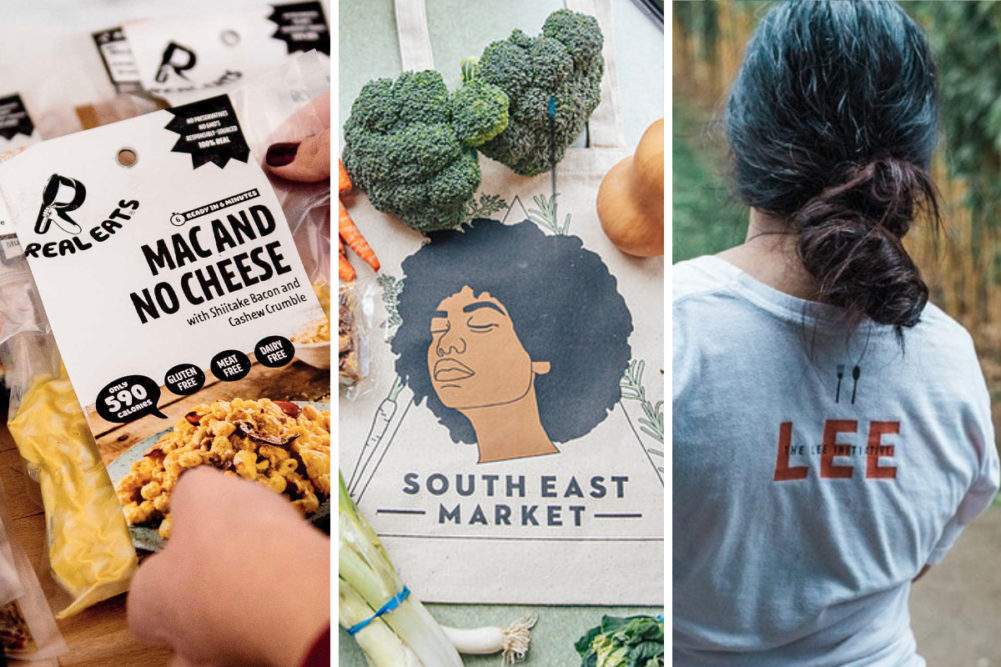NEW YORK — Dan Wise is aiming to make “real” food accessible to consumers.
The entrepreneur and investor in 2017 launched RealEats America, Inc., a Geneva, NY-based meal delivery service. Key to building the business was figuring out what “real” means in the context of food.
“It is one of those terms like ‘natural,’ it doesn’t actually mean something,” Mr. Wise said during a Jan. 19 panel presentation at the virtual Specialty Food Live! event. “We made it our mission to define what the word actually meant. One of the things we recognized is that where the food comes from is incredibly important.”
Unlike many food tech companies, RealEats is located in a rural, underserved agricultural region. The company offers a variety of healthy meals delivered in vacuum sealed bags. The bags keep food fresh for up to seven days without the use of preservatives, which helps cut back on food waste while preserving nutrients.
“Not only are we able to get our ingredients from local farmers, but we can support a local community in this underserved region, support local businesses and create jobs,” Mr. Wise said. “We’ve begun to localize the supply of our products into our kitchen. It’s an important first step in building a sustainable food future.”
 Supporting local farmers also is key to South East Market’s mission. Founded in June 2020 by Alita Kelly, the Grand Rapids, Mich.-based grocery store offers products sourced from Black, Brown, Indigenous and women-led farms and businesses.
Supporting local farmers also is key to South East Market’s mission. Founded in June 2020 by Alita Kelly, the Grand Rapids, Mich.-based grocery store offers products sourced from Black, Brown, Indigenous and women-led farms and businesses.
“A lot of people are looking for more transparency in their food,” Ms. Kelly said. “We make it easy for people to know what types of systems they’re either directly or indirectly supporting through their purchasing habits.”
Products sold in South East Market feature stickers designating where the food came from.
“They show whether it’s from a Black, Brown or Indigenous farm, whether it’s from a woman-led business and if it’s local to Michigan,” Ms. Kelly said. “Those little icons help people support the causes they want to support. That aligns us as the best place for the consumer activist.”
The store also has several initiatives aimed at creating a more equitable food system. Shoppers can donate money to a fund that allows Ms. Kelly to sell local meat at cost, making high-quality protein available to low-income families. Shoppers also can purchase produce bundles for financially challenged community members and attend educational courses to learn more about the food system, farming and social justice.
“We’re empowering people to drive the future they want to see,” Ms. Kelly said.
Efforts to support local farms and promote ethical consumption also extend into the restaurant space.
 Lindsey Ofcacek in 2017 co-founded the LEE (Let’s Empower Employment) Initiative. Created in response to the #MeToo movement, the organization addresses issues of diversity and equality in the restaurant industry through programs like Women’s Chefs of Kentucky, which fosters mentorship opportunities for female chefs in the state. Last year it began opening relief kitchens for restaurant workers impacted by the coronavirus (COVID-19).
Lindsey Ofcacek in 2017 co-founded the LEE (Let’s Empower Employment) Initiative. Created in response to the #MeToo movement, the organization addresses issues of diversity and equality in the restaurant industry through programs like Women’s Chefs of Kentucky, which fosters mentorship opportunities for female chefs in the state. Last year it began opening relief kitchens for restaurant workers impacted by the coronavirus (COVID-19).
The LEE Initiative recently launched a Restaurant Reboot program, which provides grants to small businesses to help them reopen during the pandemic.
“Their biggest concern was the products they were going to have to use,” Ms. Ofcacek said. “They had all supported small local family farms and artisan brands, which are historically more expensive.”
The LEE Initiative invested $1 million in family farms across the country to create credits for restaurants as they reopen.
“We’re focused on regrowing sustainably,” Ms. Ofcacek said. “No one would have chosen this rupture, but now that it’s here and we have to rebuild a whole industry, we want people to focus more hyper-locally.”
Supporting local farmers may be challenging for emerging brands during the pandemic. It also is more important now than ever before, Mr. Wise said.
“By not supporting independent, local farms, we’re supporting factory farming, soil erosion and global transportation of food. None of that is sustainable in any way, shape or form.”
— Dan Wise, RealEats America, Inc.
“By not supporting independent, local farms, we’re supporting factory farming, soil erosion and global transportation of food,” he said. “None of that is sustainable in any way, shape or form.”
Food industry disruptors who stick to their mission-driven roots may be surprised how willing consumers and public and private partners are to promote meaningful causes, Ms. Kelly added.
“If you’re doing the right thing and celebrating equity, diversity and sustainability, there’s a lot of people who want to support that,” she said. “Don’t be quiet about what you’re doing.”





